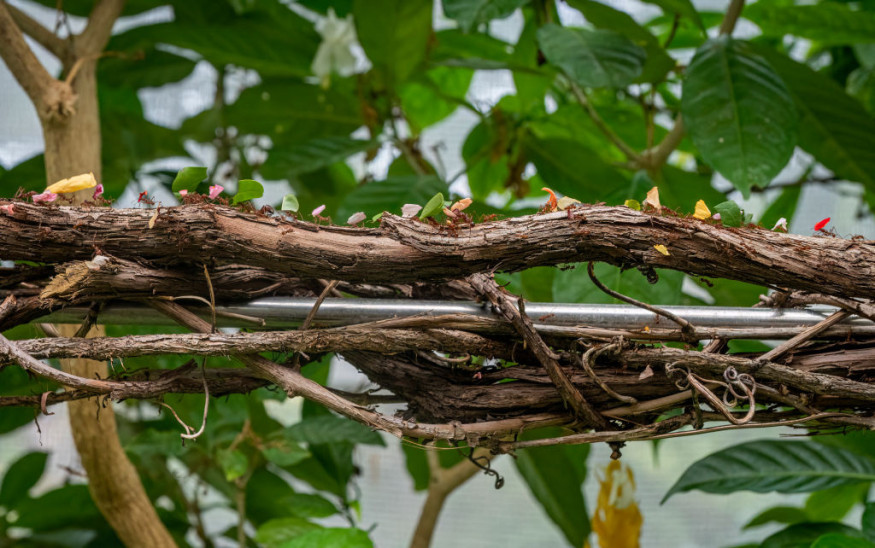
Ants have been farming fungi for over 66 million years — far longer than humans started cultivating crops, according to a new study. After an asteroid struck Earth, causing a mass extinction, certain ant species began to rely on fungi for a sustainable food source.
This natural agriculture may offer insights into how living systems can develop self-sustaining practices. Scientists from the Smithsonian Institution and Louisiana State University (LSU) led the study, analyzing genetic information from hundreds of species of ants and fungi to explore their long-standing relationship.
Ancient DNA Analysis Uncovers Ants' Evolutionary Farming Methods
By examining DNA from 276 ant species and 475 fungal species, researchers built detailed evolutionary trees to understand when and how ants first became fungus farmers. Per Science Daily, they discovered that soon after the extinction event, ants began forming a unique partnership with fungi that allowed them to adapt and survive.
Dr. Vinson Doyle, an LSU AgCenter mycologist, and Dr. Brant Faircloth, a professor in LSU's Department of Biological Sciences, helped lead the genetic research efforts. They developed techniques to capture tiny amounts of DNA from fungal fragments carried by ants, making it possible to trace this relationship back millions of years.
The research team noted that as ants began farming fungi, the partnership evolved, with ants cultivating specific types of fungi that thrived on decaying leaf litter and other organic material.
This study sheds light on how agriculture can transform ecosystems, offering insights that could inform human farming practices. While human agriculture has existed for only a few thousand years, ant agriculture has withstood dramatic environmental changes.
Dr. Doyle explained that understanding such long-lasting agricultural systems can provide models for sustainability, as ants have maintained their farming practices without depleting their resources.
The researchers found striking similarities between ant-fungal farming and human crop cultivation. Both ants and humans select and domesticate specific organisms to cultivate food, shaping their environment over generations.
According to Dr. Faircloth, this shared approach to farming shows that different species can arrive at similar solutions for sustaining food sources.
© 2025 NatureWorldNews.com All rights reserved. Do not reproduce without permission.





